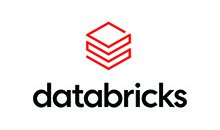Keep Up With the Pace of Change
Reporting requirements are constantly evolving to meet the changing needs of businesses and regulatory bodies, leading to a dynamic reporting landscape. This continuous change in reporting requirements often creates data integration friction as it becomes challenging to adapt to the new requirements, causing delays in reporting and decision-making.
Data can come from various systems and formats, but changing or integrating new data sources can be a complex and time consuming process. Failure to keep up with reporting changes can result in severe consequences, including financial penalties, reputation damage, and missed business opportunities.
Streamline Agile Reporting with StreamSets
StreamSets provides an efficient way to connect, schedule, and manage data flow across all sources, significantly accelerating time to insights with accurate data. Not only does this enhance decision making, it also results in better alignment for your reporting efforts.
Optimize Your Reporting

Flexible Hybrid and Multi-cloud Architecture
Easily migrate your work to the best data platform or cloud infrastructure for your needs.





What Is Agile Reporting?
Agile reporting is a flexible approach to reporting that delivers valuable insights in short, incremental timeframes. This allows for continuous feedback to ensure that the reports meet the needs of the business and external stakeholders. For example, in ESG reporting, it allows companies to rapidly deliver insights on their environmental, social, and governance initiatives, which can help build trust with investors. In regulatory and financial reporting, it helps companies meet the complex and evolving reporting requirements of regulators as well as other stakeholders. However, in order to meet these reporting requirements, organizations must understand where their data is coming from, and how it can be aggregated for efficient reporting efforts.
Accelerate Reporting Efficiency With StreamSets Data Integration
ESG Data: Understanding the Basics
ESG (Environmental, Social, and Governance) has become a critical issue for organizations across various industries. Companies are expected to operate sustainably, take care of their employees, and have strong corporate governance. Failure to meet these standards can lead to negative impacts on their brand reputation, loss of investors, and legal repercussions.

Regulatory Compliance and Reporting: A Data-driven Approach
Various industries remain heavily regulated, and regardless of their focus or business model, they all must adhere to laws, regulations, and guidelines relevant to their business in order to avoid legal punishment including fines. They must embrace new ways to integrate and analyze data so they can submit reports to regulatory bodies in a timely manner.

Leveraging Data for Accurate Financial Reporting
In order to better serve shareholders, investors, and regulators, decision makers must be able to effectively leverage all their data. Doing so will unlock insights for better decision making, identifying new business opportunities, and ensuring compliance. Ultimately, this can help improve financial reporting and increase confidence among stakeholders.

Five Challenges Limiting the Impact of Transformative Analytics
Agile Reporting With StreamSets
Five Data Principles for Ensuring Effective Operational Analytics
Ready to Learn More?
Find out how StreamSets can help your organization accelerate reporting initiatives.